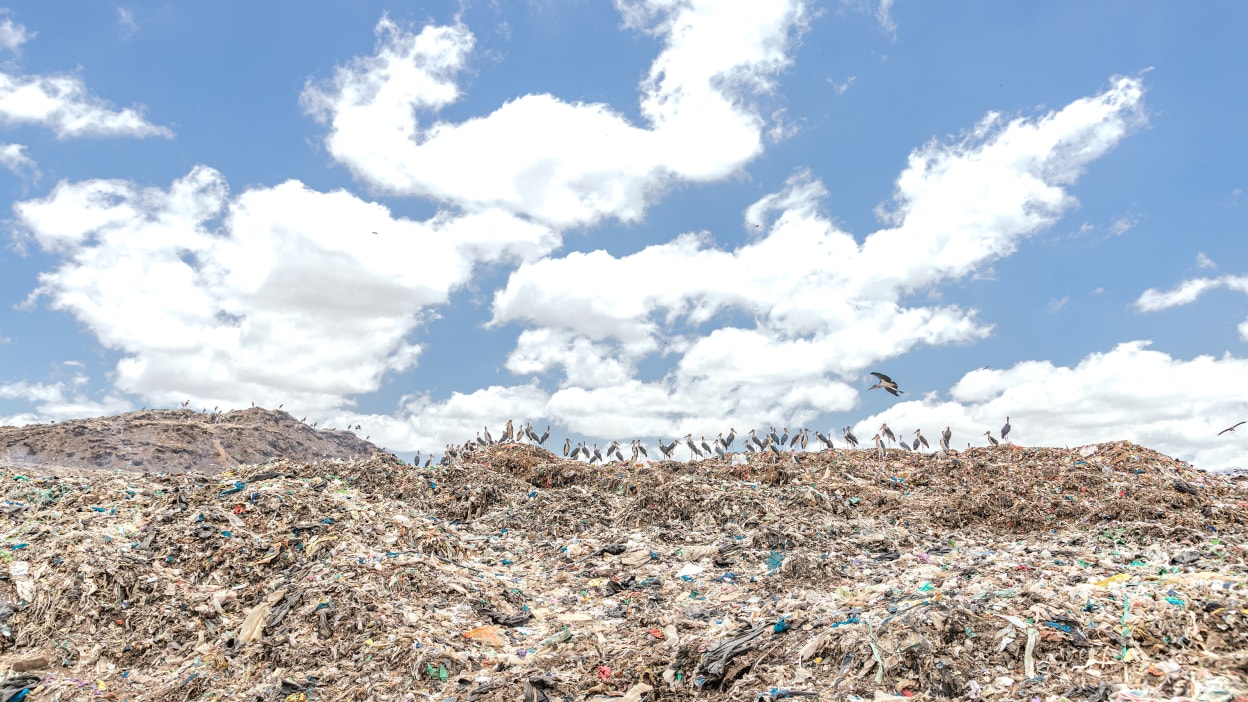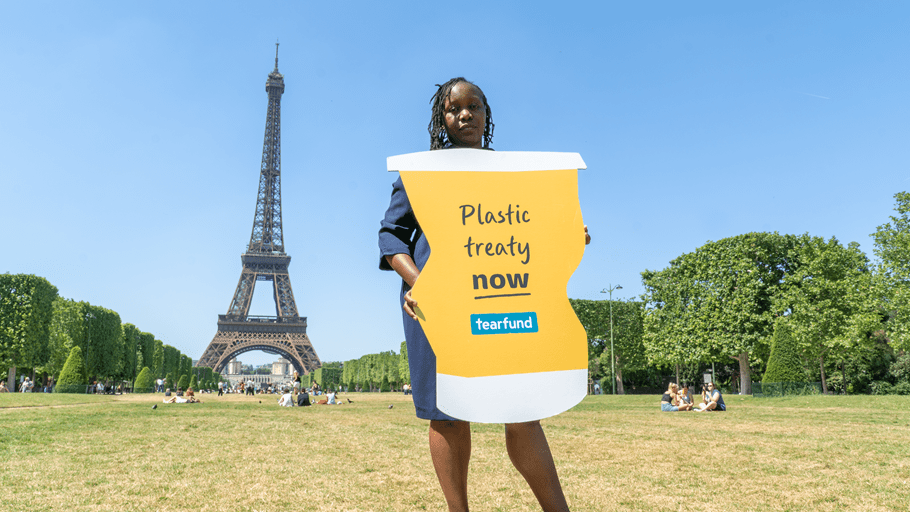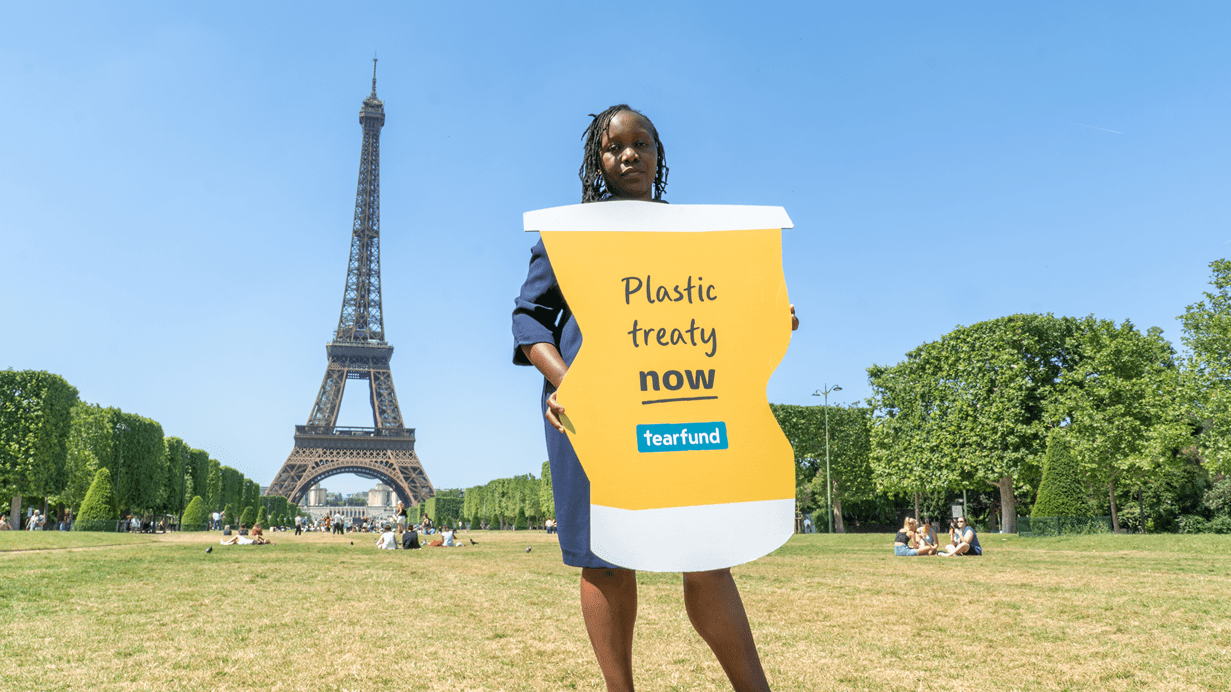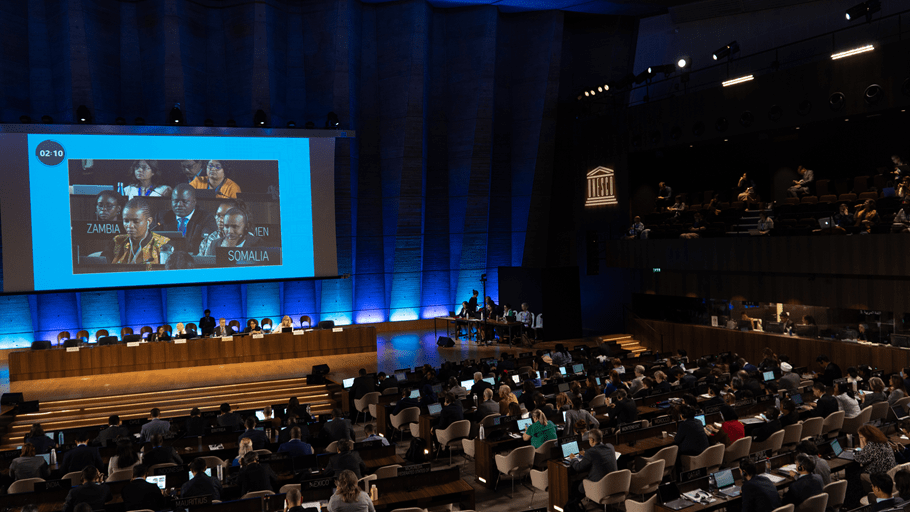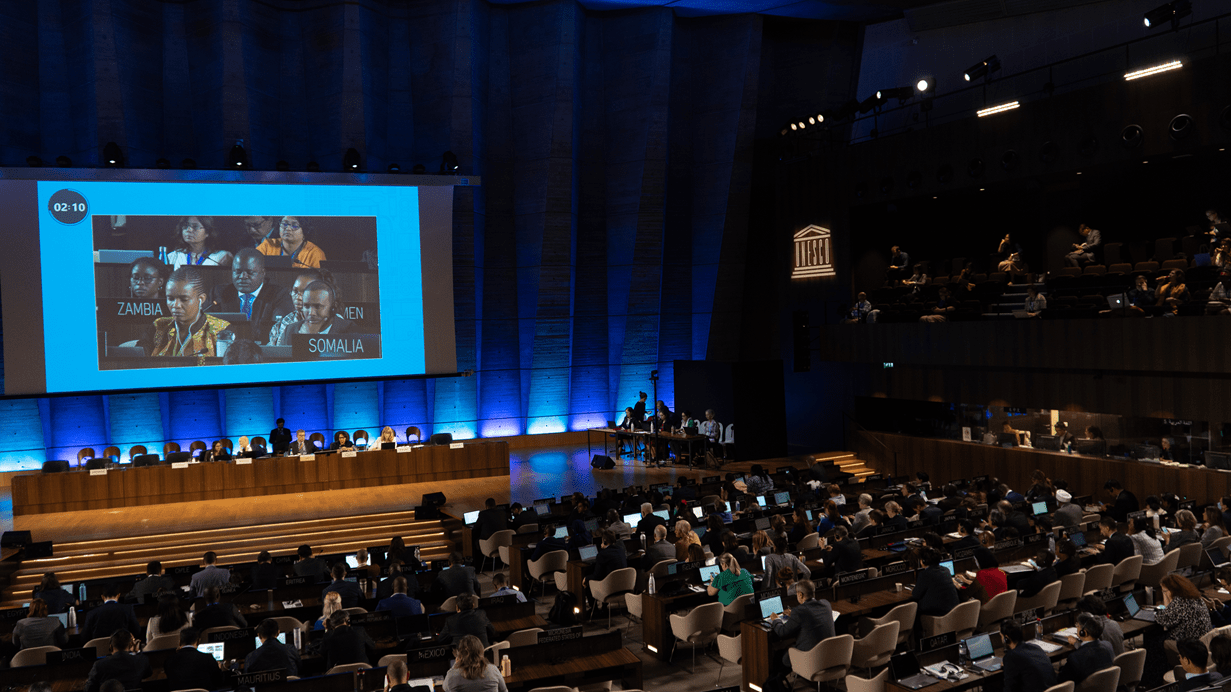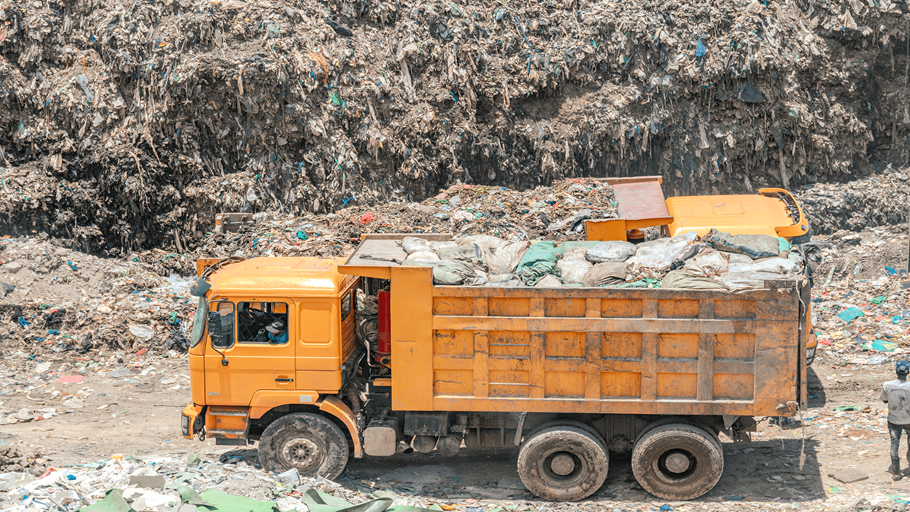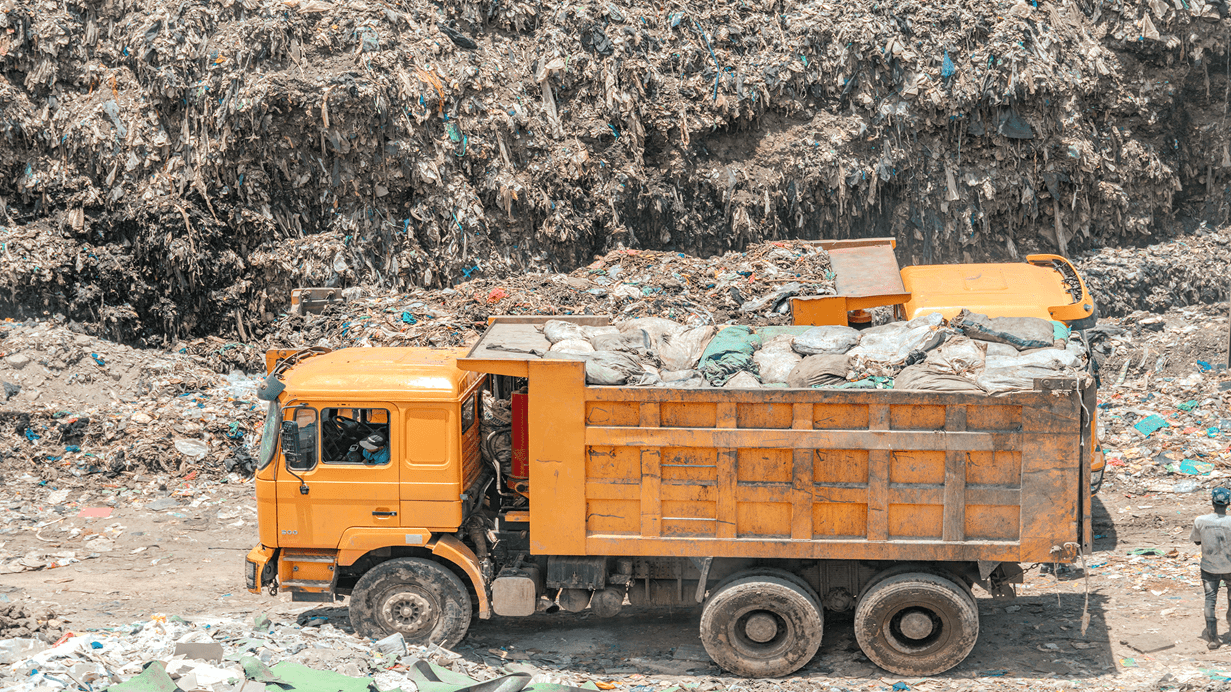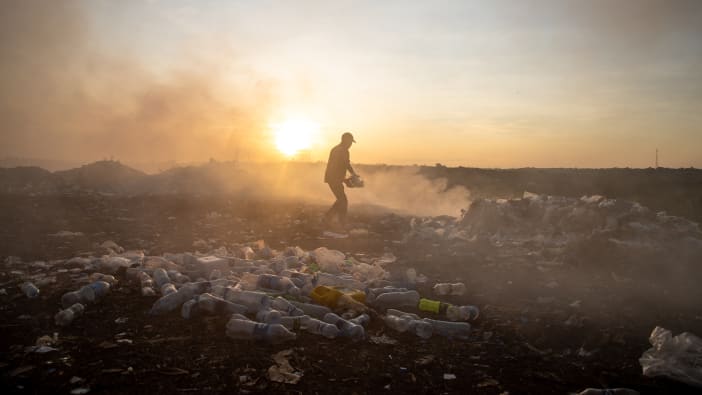In just a few weeks, thousands of people from across the world and delegates from more than 150 governments will come together for the third round of negotiations on the UN plastics treaty (known as INC-3) in Nairobi, Kenya. The talks – from 13 to 19 November – will see countries begin to make decisions on what should be in the final version of the treaty. What happens at these talks is crucial for people living in poverty who are most affected by plastic pollution.
Why is the UN plastics treaty so important?
Here’s a quick refresher. Until now there has never been a global agreement on how we deal with the world’s mounting rubbish problem. Plastic waste has an enormous impact – not only on the environment – but on billions of us who have no safe way to dispose of it, making people sick, and increasing the risk of flooding. Every 30 seconds someone dies because of diseases caused by mismanaged waste.
Without an agreement to tackle this at a global level, there’s no way to end plastic pollution and its harmful impacts on communities. That’s why we’ve been campaigning through our Rubbish Campaign, alongside Tearfund family members and allies from around the world, to ensure world leaders develop an ambitious, binding treaty that ends plastic pollution.






